Your search “Keep the death Penalty Abolished fin the philippines /page/www.humanrights.asia/resources/report/2011/AHRC-sur-008-2011/act_download/file ”
Document(s)
EVALUATING FAIRNESS AND ACCURACY IN STATE DEATH PENALTY SYSTEMS: The Florida Death Penalty Assessment Report: An Analysis of Florida’s Death Penalty Laws, Procedures, and Practices
By American Bar Association, on 1 January 2006
2006
NGO report
More details See the document
To assess fairness and accuracy in Florida’s death penalty system, the Florida Death Penalty Assessment Team researched the twelve issues that the American Bar Association identified as central to the analysis of the fairness and accuracy of a state’s capital punishment system: (1) collection, preservation, and testing of DNA and other types of evidence; (2) law enforcement identifications and interrogations; (3) crime laboratories and medical examiner offices; (4) prosecutorial professionalism; (5) defense services; (6) the direct appeal process; (7) state post-conviction proceedings; (8) clemency; (9) jury instructions; (10) judicial independence; (11) racial and ethnic minorities; and (12) mental retardation and mental illness. The Florida Death Penalty Assessment Report devotes a chapter to each of these issues, which follow a preliminary chapter on Florida death penalty law (for a total of 13 chapters). Each of the issue chapters begins with a discussion of the relevant law and then reaches conclusions about the extent to which the State of Florida complies with the ABA Recommendations.
- Document type NGO report

Member(s)
Kids Against the Death Penalty
on 30 April 2020
Kids Against the Death Penalty (KADP) is an organization dedicated to ending the Death Penalty across the World and finding justice for the men, women, and children on death row. Yes we are kids, but we know that Murder of ANY kind is wrong, and that includes state-sanctioned-murder! In order to accomplish the goal of […]
2020
United States
Document(s)
EVALUATING FAIRNESS AND ACCURACY IN STATE DEATH PENALTY SYSTEMS: The Ohio Death Penalty Assessment Report: An Analysis of Ohio’s Death Penalty Laws, Procedures, and Practices
By American Bar Association, on 1 January 2007
2007
NGO report
More details See the document
To assess fairness and accuracy in Ohio’s death penalty system, the Ohio Death Penalty Assessment Team researched the twelve issues that the American Bar Association identified as central to the analysis of the fairness and accuracy of a state’s capital punishment system: (1) collection, preservation, and testing of DNA and other types of evidence; (2) law enforcement identifications and interrogations; (3) crime laboratories and medical examiner offices; (4) prosecutorial professionalism; (5) defense services; (6) the direct appeal process; (7) state post-conviction proceedings; (8) clemency; (9) jury instructions; (10) judicial independence; (11) racial and ethnic minorities; and (12) mental retardation and mental illness. The Ohio Death Penalty Assessment Report devotes a chapter to each of these issues, which follow a preliminary chapter on Ohio death penalty law (for a total of 13 chapters). Each of the issue chapters begins with a discussion of the relevant law and then reaches conclusions about the extent to which the State of Ohio complies with the ABA Recommendations.
- Document type NGO report
- Themes list Due Process ,
Member(s)
Association for the Right to Live
on 30 April 2020
The Association for the Right to Life (ARL) was founded in Iran by Emadeddin Baghi, a writer and long-time human rights activist. Baghi was sentenced to three years in prison after writing an article against the death penalty in 2000. After his release, he established two human rights associations: – the Society for the defense […]
2020
Iran (Islamic Republic of)

Member(s)
Parliamentarians for Global Action (PGA)
on 30 April 2020
Parliamentarians for Global Action (PGA), a non-profit, non-partisan international network of over 1,200 legislators in approximately 130 elected parliaments around the globe, aims to promote peace, democracy, the rule of law, human rights, gender equality and population issues by informing, convening, and mobilizing parliamentarians to realize these goals. The network of legislators’ programme of work […]
United States
Document(s)
Facts and Figures 2008
By World Coalition against the death penalty , on 10 October 2008
2008
Campaigning
Trend Towards Abolition
frMore details See the document
Facts and Figures 2008
- Document type Campaigning
- Themes list Trend Towards Abolition
- Available languages Faits et chiffres 2008
Document(s)
EVALUATING FAIRNESS AND ACCURACY IN STATE DEATH PENALTY SYSTEMS: The Tennessee Death Penalty Assessment Report: An Analysis of Tennessee’s Death Penalty Laws, Procedures, and Practices
By American Bar Association, on 1 January 2007
2007
NGO report
More details See the document
To assess fairness and accuracy in Tennessee’s death penalty system, the Tennessee Death Penalty Assessment Team researched the twelve issues that the American Bar Association identified as central to the analysis of the fairness and accuracy of a state’s capital punishment system: (1) collection, preservation, and testing of DNA and other types of evidence; (2) law enforcement identifications and interrogations; (3) crime laboratories and medical examiner offices; (4) prosecutorial professionalism; (5) defense services; (6) the direct appeal process; (7) state post-conviction proceedings; (8) clemency proceedings; (9) jury instructions; (10) judicial independence; (11) racial and ethnic minorities; and (12) mental retardation and mental illness. Following a preliminary chapter on Tennessee’s death penalty law, the Tennessee Death Penalty Assessment Report devotes a chapter to each of these twelve issues. Each chapter begins with a discussion of the relevant law and then concludes the extent to which the State of Tennessee is in compliance with the ABA’s Recommendations.
- Document type NGO report
- Themes list Due Process ,
Document(s)
EVALUATING FAIRNESS AND ACCURACY IN STATE DEATH PENALTY SYSTEMS: The Pennsylvania Death Penalty Assessment Report: An Analysis of Pennsylvania’s Death Penalty Laws, Procedures, and Practices
By American Bar Association, on 1 January 2007
NGO report
More details See the document
To assess fairness and accuracy in Pennsylvania’s death penalty system, the Pennsylvania Death Penalty Assessment Team researched the twelve issues that the American Bar Association identified as central to the analysis of the fairness and accuracy of a state’scapital punishment system: (1) collection, preservation, and testing of DNA and other types of evidence; (2) law enforcement identifications and interrogations; (3) crime laboratories and medical examiner offices; (4) prosecutorial professionalism; (5) defense services; (6) the direct appeal process; (7) state post-conviction proceedings; (8) clemency; (9) jury instructions; (10) judicial independence; (11) racial and ethnic minorities; and (12) mental retardation and mental illness. Following a preliminary chapter on Pennsylvania’s death penalty law, the Pennsylvania Death Penalty Assessment Report devotes a chapter to each of these issues. Each chapter begins with a discussion of the relevant law and concludes with a discussion of the extent to which the Commonwealth of Pennsylvania is in compliance with the ABA’s Recommendations.
- Document type NGO report
- Themes list Due Process ,
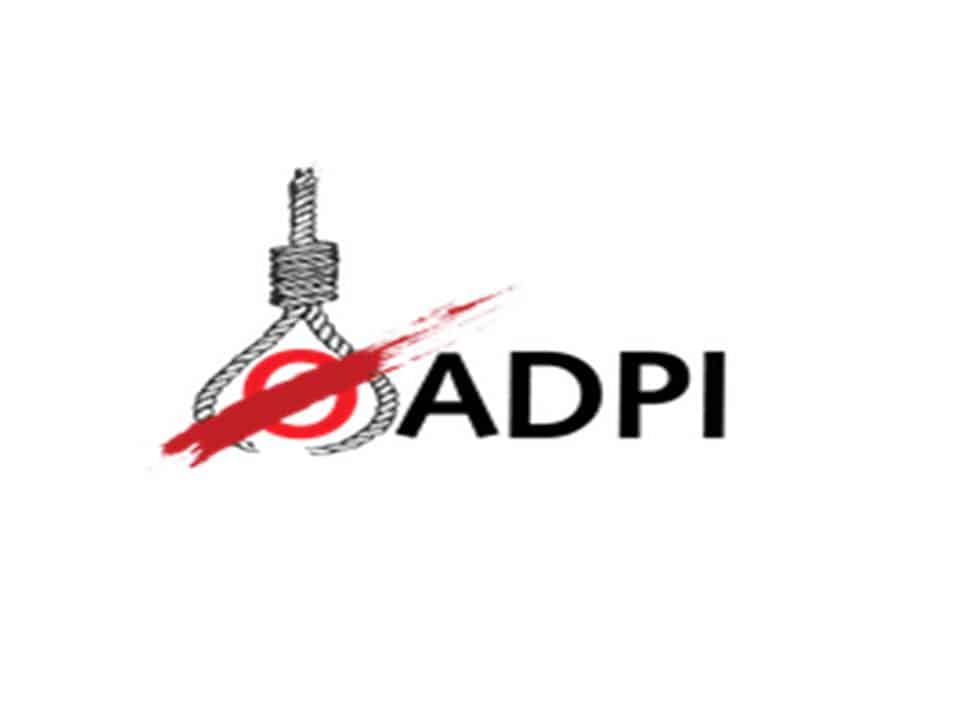
Member(s)
Abolition Death Penalty of Iraq Organization
on 30 June 2023
According to the Abolition Death Penalty of Iraq Organization, capital punishment is the state’s terminology for murder. Individuals murder each other, but states sentence individuals to ‘capital punishment.’ The demand to end capital punishment and prohibit murder stems from opposition to intentional, deliberate and planned murder of one by the other. That a state or […]
2023
Iraq
Document(s)
Leaflet Lobbying
By World Coalition against the death penalty , on 10 October 2007
2007
Campaigning
Trend Towards Abolition
frMore details See the document
Leaflet Lobbying
- Document type Campaigning
- Themes list Trend Towards Abolition
- Available languages Brochure Lobbying 2007
Document(s)
Capital punishment and implementation of the safeguards guaranteeing protection of the rights of those facing the death penalty: Report of the Secretary-General
By United Nations, on 1 January 2005
2005
United Nations report
arruesfrzh-hantMore details See the document
The present report, prepared pursuant to Economic and Social Council resolutions 1754 (LIV) of 16 May 1973 and 1995/57 of 28 July 1995, and Council decision 2005/247 of 22 July 2005, is the eighth quinquennial report of the Secretary-General on capital punishment. It covers the period 2004-2008 and reviews developments in the use of capital punishment. The report confirms a very marked trend towards abolition and restriction of the use of capital punishment in most countries. The rate at which States that retained the death penalty at the start of the quinquennium have abolished its use either in law or in practice is comparable with that of previous reporting periods, and may even be accelerating slightly. Moreover, countries that retain the death penalty are, with rare exceptions, significantly reducing its use in terms of numbers of persons executed and the crimes for which it may be imposed. Nevertheless, where capital punishment remains in force, there are serious problems with regard to the respect of international norms and standards, notably in the limitation of the death penalty to the most serious crimes, the exclusion of juvenile offenders from its scope, and guarantees of a fair trial.
- Document type United Nations report
- Themes list Trend Towards Abolition,
- Available languages عقوبة الإعدام وتنفيذ الضمانات التي تكفل حماية حقوق الذين يواجهون عقوبة الإعدام : م ذكّرة من الأمين العامСмертная казнь и применение мер, гарантирующих защиту прав тех, кому грозит смертная казнь : Доклад Генерального секретаряLa pena capital y la aplicación de las salvaguardias para garantizar la protección de los derechos de los condenados a la pena de muerte : Informe del Secretario GeneralPeine capitale et application des garanties pour la protection des droits des personnes passibles de la peine de mort: Rapport du Secrétaire général死刑和保护死刑犯权利的保障措施的执行情况: 秘书长的报告
Article(s)
1,700-mile “Walk4Life” across the US
on 13 March 2008
American hip-hop artist Andre Latallade, also known as Capital-“X”, will walk 1,700 miles from New Jersey to Texas from March 31 to campaign against the death penalty.
2008
Drug Offenses
United States
Article(s)
China reduces the number of crimes punishable by death to 46, but keeps drug trafficking in the list
By Aurélie Plaçais, on 7 October 2015
China removes nine non-violent and rarely used criminal offenses from capital punishment.
2015
China
Drug Offenses
Document(s)
Capital punishment and the implementation of the safeguards guaranteeing protection of the rights of those facing the death penalty – Yearly supplement of the Secretary-General to his quinquennial report
By United Nations / Human Rights Council, on 8 September 2020
2020
United Nations report
rufrzh-hantesMore details See the document
The Report examines the possible consequences of the imposition and application of the death penalty on the enjoyment of various human rights, including human dignity, the right to life, the right to freedom from torture or other cruel, inhuman or degrading treatment or punishment, the right to a fair trial and the right to equality and non-discrimination. It further examines the human rights consequences of the lack of transparency in the imposition and application of the death penalty.
- Document type United Nations report
- Themes list Fair Trial, Right to life, Cruel, Inhuman and Degrading Treatment and Punishment,
- Available languages Смертная казнь и осуществление мер, гарантирующих защиту прав лиц, приговоренных к смертной казни. Ежегодное дополнение Генерального секретаря к его пятилетнему докладу по вопросу о смертной казниPeine capitale et application des garanties pour la protection des droits des personnes passibles de la peine de mort. Supplément annuel au rapport quinquennal du Secrétaire général sur la peine capitale死刑和保护死刑犯权利的保障措施的执行情况 秘书长关于死刑问题的五年一度报告的年度补编La pena capital y la aplicación de las salvaguardias para garantizar la protección de los derechos de los condenados a la pena de muerte. Suplemento anual del Secretario General de su informe quinquenal sobre la pena capital
Article(s)
Live from death row
on 25 February 2010
The 180 members of the public who had gathered to view the film Manners of dying had an opportunity to witness a discussion between Mumia Abu-Jamal and his lawyer Robert Bryan.
2010
Switzerland
United States

Article(s)
Pakistan’s Supreme Court Repeals Death Penalty for people with intellectual disability
By Louis Linel, on 10 February 2021
By commuting two death sentences, the Supreme Court of Pakistan ruled that capital punishment cannot be carried out to people with serious mental health issues.
2021
Intellectual Disability
Pakistan
Document(s)
Leaflet LGBTQIA+ people and the Death Penalty
By World coalition against the death penalty, on 2 October 2023
2023
World Coalition
Gender
frMore details Download [ pdf - 861 Ko ]
- Document type World Coalition
- Themes list Gender
- Available languages Brochure personnes LGBTQIA+ et peine de mort
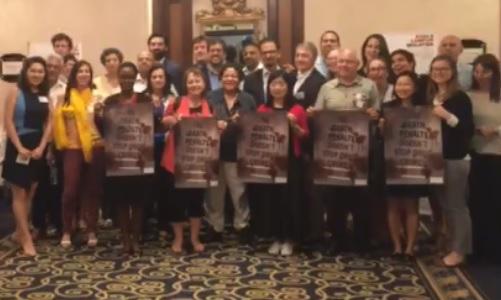
Article(s)
World Coalition elects new decision-making bodies
By World Coalition Against the Death Penalty, on 22 June 2015
The World Coalition Against the Death Penalty has elected a new Steering Committee and a new Executive Board to serve for two years.
2015
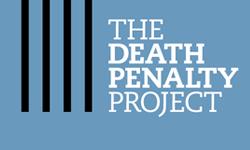
Member(s)
The Death Penalty Project (DPP)
on 30 April 2020
The Death Penalty Project is an international legal action charity, based in London, working to promote and protect the human rights of those facing the death penalty. We provide free legal representation to death row prisoners around the world, with a focus on Commonwealth countries, to highlight miscarriages of justice and breaches of human rights. […]
2020
United Kingdom

Member(s)
German Coalition to Abolish the Death Penalty
on 30 April 2020
The Initiative gegen die Todesstrafe e.V. (German Coalition to Abolish the Death Penalty – GCADP) was founded in 1997 and is a non-profit organization since 2000. Our association is committed to the worldwide abolition of the death penalty. Our work is based on the contents of the Universal Declaration of Human Rights of 1948 as […]
Germany

Member(s)
Coalition marocaine contre la peine de mort
on 30 April 2020
The Moroccan Coalition Against the Death Penalty (CMCPM) brings together seven NGOs: -the Moroccan Prison Observatory, -the Moroccan Human Rights Association, -the Moroccan Forum for Truth and Justice, -the Moroccan Organisation for Human Rights, -the Association of Lawyers’ Bars in Morocco, -Amnesty International – Moroccan Section and -the Centre for People’s Rights. Its objectives are […]
Morocco
Article(s)
Video: China’s death penalty Olympic medal
on 8 April 2008
French organisation Together Against the Death Penalty seized the opportunity of the Olympic Torch relay in Paris to highlight China’s world record when it comes to executions.
2008
China
France

Member(s)
Kenyan Section of the International Commission of Jurists (ICJ-KENYA)
on 30 April 2020
Mandate and goals : – To develop, strengthen and protect the principles of the rule of law in Kenya. – Develop, maintain and protect the independence of the judiciary and the legal profession in Kenya. – Protect and promote the enjoyment of human rights in Kenya and Africa. Kind of actions : – Legal research […]
2020
Kenya

Member(s)
ACAT France
on 30 April 2020
ACAT-France – Action by Christians for the Abolition of Torture – is a human rights NGO that campaigns for the abolition of torture and the death penalty, and defends the right to asylum. Founded in 1974, ACAT-France has 28,000 members, including nearly 6,000 supporters and a team of 25 professionals working in its national secretariat. […]
France
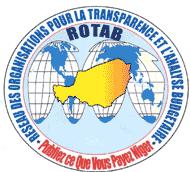
Member(s)
ROTAB
on 30 April 2020
The Organisation for Transparency and Budgetary Analysis (ROTAB – Publish What You Pay Niger) is a group of several associations, NGOs and unions in Niger who decided to take part in the worldwide campaign Publish What You Pay. This initiative calls for transparency in the extraction industry, at a time when the murky nature of […]
Niger
Document(s)
Investigating Attitudes to the Death Penalty in Indonesia, Part Two – Public Opinion: No Barrier to Abolition
By Carolyn Hoyle - The Death Penalty Project, in partnership with LBH Masyarakat and the University of Indonesia, on 28 June 2021
2021
NGO report
Drug Offenses
Indonesia
Public Opinion
More details See the document
In 2019-20, The Death Penalty Project, in partnership with LBH Masyarakat and the University of Indonesia, commissioned Professor Carolyn Hoyle, of The Death Penalty Research Unit at the University of Oxford to conduct research investigating attitudes towards the death penalty in Indonesia. The findings have been presented in a two-part report; the first details the findings of a nuanced public survey and the second details the findings of interviews conducted with opinion formers. The public opinion research was undertaken by surveying a stratified random sample of 1,515 respondents – a sample large enough to make inferences from the data about the views of the overall population.
- Document type NGO report
- Countries list Indonesia
- Themes list Drug Offenses / Public Opinion

Article(s)
Guatemala abolishes the death penalty for ordinary crimes
By World Coalition Against the Death Penalty, on 31 October 2017
On October 24, the Constitutional Court of Guatemala has abolished the death penalty in civil cases.
2017
Guatemala
Document(s)
EVALUATING FAIRNESS AND ACCURACY IN STATE DEATH PENALTY SYSTEMS: The Georgia Death Penalty Assessment Report: An Analysis of Georgia’s Death Penalty Laws, Procedures, and Practices
By American Bar Association, on 1 January 2006
2006
NGO report
More details See the document
To assess fairness and accuracy in Georgia’s death penalty system, the Georgia Death Penalty Assessment Team researched twelve issues: (1) collection, preservation, and testing of DNA and other types of evidence; (2) law enforcement identifications and interrogations; (3) crime laboratories and medical examiner offices; (4) prosecutorial professionalism; (5) defense services; (6) the direct appeal process; (7) state postconviction proceedings; (8) clemency; (9) jury instructions; (10) judicial independence; (11) the treatment of racial and ethnic minorities; and (12) mental retardation and mental illness. The Georgia Death Penalty Assessment Report summarizes the research on each issue and analyzes the level of compliance with the relevant ABA Recommendations.
- Document type NGO report
Document(s)
EVALUATING FAIRNESS AND ACCURACY IN STATE DEATH PENALTY SYSTEMS: The Arizona Death Penalty Assessment Report: An Analysis of Arizona’s Death Penalty Laws, Procedures, and Practices
By American Bar Association, on 1 January 2006
NGO report
More details See the document
To assess fairness and accuracy in Arizona’s death penalty system, the Arizona Death Penalty Assessment Team researched twelve issues: (1) collection, preservation, and testing of DNA and other types of evidence; (2) law enforcement identifications and interrogations; (3) crime laboratories and medical examiner offices; (4) prosecutorial professionalism; (5) defense services; (6) the direct appeal process; (7) state postconviction proceedings; (8) clemency; (9) jury instructions; (10) judicial independence; (11) the treatment of racial and ethnic minorities; and (12) mental retardation and mental illness. The Arizona Death Penalty Assessment Report summarizes the research on each issue and analyzes the State’s level of compliance with the relevant ABA Recommendations.
- Document type NGO report
Document(s)
EVALUATING FAIRNESS AND ACCURACY IN STATE DEATH PENALTY SYSTEMS: The Alabama Death Penalty Assessment Report: An Analysis of Alabama’s Death Penalty Laws, Procedures, and Practices
By American Bar Association, on 1 January 2006
NGO report
More details See the document
To assess fairness and accuracy in Alabama’s death penalty system, the Alabama Death Penalty Assessment Team researched twelve issues: (1) collection, preservation, and testing of DNA and other types of evidence; (2) law enforcement identifications and interrogations; (3) crime laboratories and medical examiner offices; (4) prosecutorial professionalism; (5) defense services; (6) the direct appeal process; (7) state postconviction proceedings; (8) clemency; (9) jury instructions; (10) judicial independence; (11) the treatment of racial and ethnic minorities; and (12) mental retardation and mental illness. The Alabama Death Penalty Assessment Report summarizes the research on each issue and analyzes the level of compliance with the relevant ABA Recommendations.
- Document type NGO report
Document(s)
Protecting the right to life against the Death Penalty. Written observations to the Inter-American Court of Human Rights on Legislative or Other Measures Denying Judicial or Other Effective Recourses to Challenge the Death Penalty.
By Amnesty International, on 1 January 2004
2004
NGO report
esMore details See the document
This document contains Amnesty International’s written observations to the Inter-American Court of Human Rights on legislative or other measures denying judicial or other effective recourse to challenge the death penalty; in the matter of a request by the Inter-American Commission on Human Rights for an advisory opinion from the Inter-American Court of Human Rights (article 64(1) of the American Convention on Human Rights) and in the matter of legislative measures concerning the mandatory imposition of the death penalty and related matters.
- Document type NGO report
- Themes list Right to life, Mandatory Death Penalty,
- Available languages Proteger el derecho a la vida frente a la pena de muerte. Observaciones escritas a la Corte Interamericana de Derechos Humanos respecto de las medidas legislativas o de otra índole que niegan un recurso judicial u otro recurso efectivo para impugnar la pena de muerte
Document(s)
On the possibility of Viet Nam ratifying the Second Optional Protocol to the ICCPR aiming at the Abolition of the Death Penalty
By European Union / United Nations Development Programme / Nguyen Thi Thanh Hai / Nguyen Van Hoan / Nguyen Minh Khue, on 1 January 2019
2019
International law - United Nations
enMore details See the document
This study aims to assess the possibility of Viet Nam ratifying the Second Optional Protocol to the International Covenant on Civil and Political Rights (ICCPR) aiming at the abolition of the death penalty. It analyzes: (a) the current international legal framework and the process of legal development to abolish the death penalty in selected countries, (b) the compatibility between the existing regulations on the death penalty in the Vietnamese legal system and the Second Optional Protocol of the ICCPR, and (c) the assessment of feasibility for abolition of the death penalty in Viet Nam.
- Document type International law - United Nations
- Themes list International law, Country/Regional profiles,
- Available languages Viêt Namese : Khả năng của Việt Nam gia nhập Nghị định thư tùy chọn thứ hai về bãi bỏ hình phạt tử hình theo Công ước quốc tế về các quyền dân sự và chính trị (ICCPR)
Document(s)
19th World Day Against the Death Penalty – Engaging the Special Procedures of the UN Human Rights Council: Women and the Death Penalty
By World Coalition Against the Death Penalty, Reprieve, FIACAT, The Advocates for Human Rights, on 10 August 2021
2021
Working with...
Women
frMore details Download [ pdf - 454 Ko ]
While the methods in this tool are applicable beyond the scope of capital punishment, for the 19th World Day Against the Death Penalty, Reprieve and the World Coalition Against the Death Penalty have drafted this How-To on engaging the United Nations (UN) Special Procedures for elevating cases pertaining to women who have been sentenced to the death penalty.
- Document type Working with...
- Themes list Women
- Available languages Saisir les procédures spéciales du Conseil des droits de l'Homme des Nations unies : les femmes et la peine de mort

Member(s)
Coalition nationale tunisienne contre la peine de mort
on 30 April 2020
The National Tunisian Coalition Against the Death Penalty (CTCPM) was founded in 2007 and legally recognized in 2012 after the fall of dictator Ben Ali. The CTCPM continues many generations of activist’ fight for the abolition of the death penalty since the mid-1970s. The CTCPM’s objectives are written down in its charter: – Achieving the abolition […]
2020
Tunisia
Document(s)
Note verbale dated 11 March 2011 from the Permanent Mission of Egypt to the United Nations addressed to the Secretary-General
By United Nations, on 8 September 2020
2020
United Nations report
Afghanistan
Antigua and Barbuda
Bahamas
Bahrain
Bangladesh
Barbados
Botswana
Brunei Darussalam
Central African Republic
Chad
China
Democratic People's Republic of Korea
Democratic Republic of the Congo
Dominica
Egypt
Equatorial Guinea
Eritrea
Eswatini
Ethiopia
Grenada
Guinea
Guyana
Indonesia
Iran (Islamic Republic of)
Iraq
Jamaica
Kuwait
Lao People's Democratic Republic
Libya
Malaysia
Moratorium
Myanmar
Niger
Nigeria
Oman
Pakistan
Papua New Guinea
Qatar
Saint Kitts and Nevis
Saint Lucia
Saint Vincent and the Grenadines
Saudi Arabia
Sierra Leone
Singapore
Solomon Islands
Somalia
Sudan
Syrian Arab Republic
Tonga
Trinidad and Tobago
Uganda
United Arab Emirates
Yemen
Zimbabwe
aresfrruzh-hantMore details See the document
The permanent missions to the United Nations in New York listed below have the honour to refer to General Assembly resolution 65/206, entitled “Moratorium on the use of the death penalty”, which was adopted by the Third Committee on 11 November 2010, and subsequently by the General Assembly on 21 December 2010 by a recorded vote. The permanent missions wish to place on record that they are in persistent objection to any attempt to impose a moratorium on the use of the death penalty or its abolition in contravention of existing stipulations under international law, for the following reasons:
- Document type United Nations report
- Countries list Afghanistan / Antigua and Barbuda / Bahamas / Bahrain / Bangladesh / Barbados / Botswana / Brunei Darussalam / Central African Republic / Chad / China / Democratic People's Republic of Korea / Democratic Republic of the Congo / Dominica / Egypt / Equatorial Guinea / Eritrea / Eswatini / Ethiopia / Grenada / Guinea / Guyana / Indonesia / Iran (Islamic Republic of) / Iraq / Jamaica / Kuwait / Lao People's Democratic Republic / Libya / Malaysia / Myanmar / Niger / Nigeria / Oman / Pakistan / Papua New Guinea / Qatar / Saint Kitts and Nevis / Saint Lucia / Saint Vincent and the Grenadines / Saudi Arabia / Sierra Leone / Singapore / Solomon Islands / Somalia / Sudan / Syrian Arab Republic / Tonga / Trinidad and Tobago / Uganda / United Arab Emirates / Yemen / Zimbabwe
- Themes list Moratorium
- Available languages مذكرة شفوية مؤرخة 11 آذار/مارس 2011 موجَّهة إلى الأمين العام من البعثة الدائمة لمصر لدى الأمم المتحدةNota verbal de fecha 11 de marzo de 2011 dirigida al Secretario General por la Misión Permanente de Egipto ante las Naciones UnidasNote verbale datée du 11 mars 2011, adressée au Secrétaire général par la Mission permanente de l’Égypte auprès de l’Organisation des Nations UniesВербальная нота Постоянного представительства Египта при Организации Объединенных Наций от 11 марта 2011 года на имя Генерального секретаря2011年3月11日埃及常驻联合国代表团给秘书长的普通照会
Member(s)
Centre d’Observation des Droits de l’Homme et d’Assistance Sociale (CODHAS)
on 30 April 2020
CODHAS aims to: – Contribute to the defense and promotion of human rights in the province of North Kivu; – Contribute to the promotion of peace and reconciliation; – Contribute to the promotion of gender Art6. Achieving these aims, in particular through the following strategies: – Organization of activities for the extension of Congolese law […]
2020
Democratic Republic of the Congo
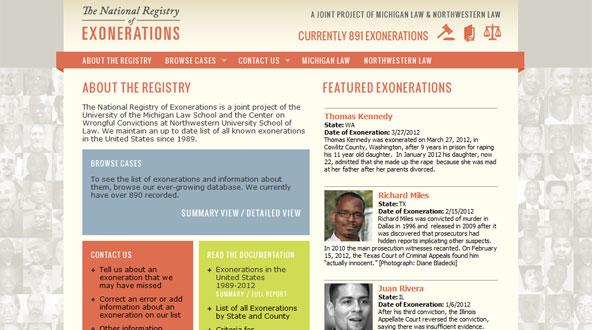
Article(s)
One in nine exonerations in new database is a capital case
By World Coalition, on 26 May 2012
A new online project listing 891 exonerated wrongful convictions in the US includes 101 death sentences.
2012
Innocence
United States
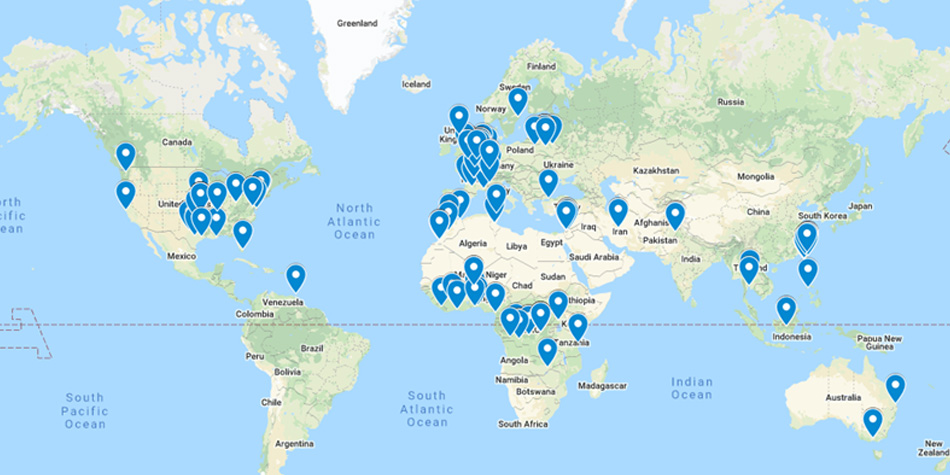
Article(s)
Take Action for World Day 2023!
By World coalition against the death penalty, on 20 September 2023
Take action now! The 21st World Day Against the Death Penalty is an excellent opportunity to publicly oppose the use of this inhumane punishment and to support those who are fighting for its abolition all over the world.
2023
Cruel, Inhuman and Degrading Treatment and Punishment
Article(s)
Call for actions in Barbados and Eastern Caribbean
By Greater Caribbean For Life and World Coalition Against the Death Penalty, on 10 July 2018
As part of a joint project which aims to create a platform for death penalty reform in Barbados and the Eastern Caribbean, the Greater Caribbean For Life (GCL) and the World Coalition are lanching a call for actions.
2018
Barbados
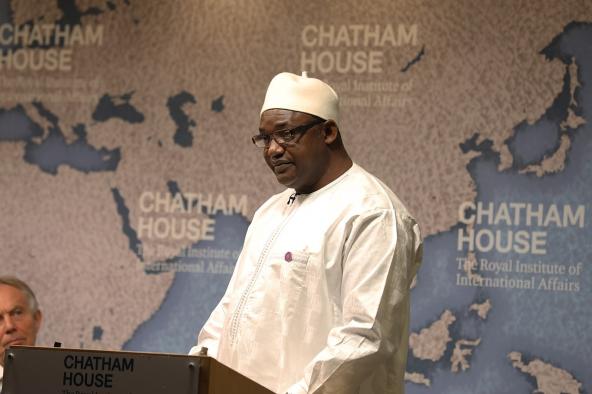
Article(s)
Gambia commits to full abolition of the death penalty
By Nicolas Chua, on 26 October 2018
On 28 September 2018, during the UN Treaty Event in New York, Gambia ratified the Second Optional Protocol to the ICCPR, aiming at the irreversible abolition of the death penalty, alongside the Convention Against Torture.
2018
Gambia

Article(s)
European Protocol for full abolition turns 20
By World Coalition Against the Death Penalty, on 3 May 2022
Today is the 20th anniversary of the adoption of Protocol No. 13 to the Convention for the Protection of Human Rights and Fundamental Freedoms, concerning the abolition of the death penalty in all circumstances.
2022
Armenia
Azerbaijan
Document(s)
Moratorium on the use of the death penalty. Report of the Secretary-General (2008)
By United Nations, on 8 September 2020
2020
United Nations report
arruzh-hantesfrMore details See the document
The present report surveys respect for the rights of those sentenced to death as set out in the international human rights treaties and the guidelines established by the Economic and Social Council in 1984. Drawing on contributions of Member States, the report surveys various motivations for establishing a moratorium on or abolishing the death penalty, as well as those for retaining the death penalty. It also includes up-to-date statistical information on the worldwide use of the death penalty, including moratoriums established in States that have not abolished this form of punishment, together with relevant developments since the sixty-second session of the General Assembly. The report concludes by confirming the global trend towards abolition of the death penalty, the important role played by moratoriums in those States that seek to abolish it and possibilities for further work on the issue.
- Document type United Nations report
- Themes list Moratorium ,
- Available languages وقف استخدام عقوبة الإعدام :تقرير الأمين العامМоратории на применение смертной казни: Доклад Генерального секретаря暂停使用死刑: 秘书长的报告Moratoria del uso de la pena de muerte : Informe del Secretario GeneralMoratoires sur l'application de la peine de mort: Rapport du Secrétaire général
Document(s)
Capital punishment and implementation of the safeguards guaranteeing protection of the rights of those facing the death penalty : report of the Secretary-General
By United Nations, on 1 January 2001
2001
United Nations report
arrufrzh-hantesMore details See the document
The present, sixth quinquennial report contains a review of the trends in the application of the death penalty, including the implementation of the safeguards, during the period l994-2000. It is a revised, updated version of the report of the Secretary-General on the subject (E/2000/3) that was submitted to the Council at its substantive session of 2000, to the Commission on Crime Prevention and Criminal Justice at its ninth session and to the Commission on Human Rights at its fifty-sixth session. Sixty-three countries participated in the survey. There was again a relatively poor response from retentionist countries, especially those making the most use of capital punishment. One major conclusion to be drawn is that, since l994, the rate at which countries have embraced abolition has remained unchanged.
- Document type United Nations report
- Themes list Trend Towards Abolition,
- Available languages عقوبة الإعدام وتنفيذ الضمانات التي تكفل حماية حقوق الذين يواجهون عقوبة الإعدام : م ذكّرة من الأمين العامСмертная казнь и применение мер, гарантирующих защиту прав тех, кому грозит смертная казнь : Доклад Генерального секретаряPeine capitale et application des garanties pour la protection des droits des personnes passibles de la peine de mort: Rapport du Secrétaire général死刑和保护死刑犯权利的保障措施的执行情况: 秘书长的报告La pena capital y la aplicación de las salvaguardias para garantizar la protección de los derechos de los condenados a la pena de muerte: Informe del Secretario General
Document(s)
Capital punishment and implementation of the safeguards guaranteeing protection of the rights of those facing the death penalty : report of the Secretary-General
By United Nations / Economic and Social Council, on 1 January 2015
2015
United Nations report
rufrzh-hantesMore details See the document
The Economic and Social Council, by its resolution 1745 (LIV) of 16 May 1973, invited the Secretary-General to submit to it, at five-year intervals starting from 1975, periodic updated and analytical reports on capital punishment. The Council, by its resolution 1995/57 of 28 July 1995, recommended that the quinquennial reports of the Secretary-General should continue to cover also the implementation of the safeguards guaranteeing protection of the rights of those facing the death penalty. By the same resolution, the Council requested the Secretary-General, in preparing the quinquennial report, to draw on all available data, including current criminological research. The present ninth quinquennial report reviews the use of and trends in capital punishment, including the implementation of the safeguards during the period 2009-2013.
- Document type United Nations report
- Themes list International law, Trend Towards Abolition, Most Serious Crimes,
- Available languages Смертная казнь и применение мер, гарантирующих защиту прав тех, кому грозит смертная казнь : Доклад Генерального секретаряPeine capitale et application des garanties pour la protection des droits des personnes passibles de la peine de mort : Rapport du Secrétaire général死刑和保护死刑犯权利的保障措施的执行情况 : 秘书长的报告La pena capital y la aplicación de las salvaguardias para garantizar la protección de los derechos de los condenados a la pena de muerte : Informe del Secretario General
Document(s)
The Death Penalty in the Socialist Republic of Vietnam – Special edition for the 4th World Congress Against the Death Penalty
By Vietnam Committee on Human Rights / International Federation for Human Rights (FIDH), on 8 September 2020
2020
NGO report
Viet Nam
More details See the document
The use of the death penalty is frequent in the Socialist Republic of Vietnam (SRV). Capital punishment is applied for 22 offences, including murder, armed robbery, drug trafficking, rape, sexual abuse of children, and a range of economic crimes, such as graft and corruption, fraud and embezzlement (for 500 million dong – $33,200 – or more of state property), illegal production and trade of food, foodstuffs and medicines. Seven political acts perceived as “threats against national security” carry the death penalty as a maximum sentence. Capital punishment is most often used to sanction drug-related offences, followed by corruption, black-market and violent crimes. Vietnam has some of the harshest drug laws in the world. A 1997 law made possession or smuggling of 100g or more of heroin, or 5 kilograms or more of opium, punishable by death. In 2001, 55 sentences were pronounced for drug trafficking alone.
- Document type NGO report
- Countries list Viet Nam
- Themes list Firing Squad, Country/Regional profiles,
Document(s)
The True Legacy of Atkins and Roper: The Unreliability Principle, Mentally Ill Defendants, and the Death Penalty’s Unraveling
By Scott E. Sundby / University of Miami School of Law, on 8 September 2020
NGO report
United States
More details See the document
In striking down the death penalty for intellectually disabled and juvenile defendants, Atkins v. Virginia and Roper v. Simmons have been understandably heralded as important holdings under the Court’s Eighth Amendment jurisprudence that has found the death penalty “disproportional” for certain types of defendants and crimes. This Article argues, however, that the cases have a far more revolutionary reach than their conventional understanding. In both cases the Court went one step beyond its usual two-step analysis of assessing whether imposing the death penalty violated “evolving standards of decency.” This extra step looked at why even though intellectual disability and youth were powerful mitigators, juries were not able to reliably use them in their decision making. The Court thus articulated expressly for the first time what this Article calls the “unreliability principle:” if too great a risk exists that constitutionally protected mitigation cannot be reliably assessed, the unreliability means that the death penalty cannot be constitutionally imposed. In recognizing the unreliability principle, the Court has called into serious question the death penalty for other offenders to whom the principle applies, such as mentally ill defendants. And, unlike with the “evolving standards” analysis, the unreliability principle does not depend on whether a national consensus exists against the practice. This Article identifies the six Atkins-Roper factors that bring the unreliability principle into play and shows why they make application of the death penalty to mentally ill defendants unconstitutional. The principle, which finds its constitutional home in the cases of Woodson v. North Carolina and Lockett v. Ohio, has profound implications for the death penalty, and if taken to its logical endpoint calls into question the Court’s core premise since Furman v. Georgia, that by providing individualized consideration of a defendant and his crime, the death penalty decision will be free of arbitrariness.
- Document type NGO report
- Countries list United States
- Themes list Fair Trial, Intellectual Disability,
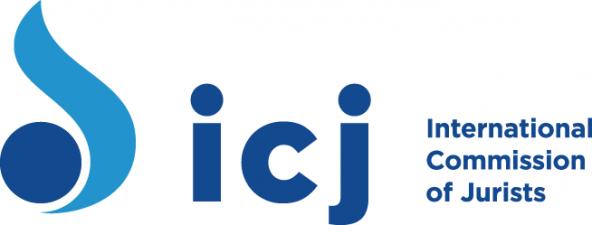
Member(s)
International Commission of Jurists
on 30 April 2020
The International Commission of Jurists (ICJ) is dedicated to promoting rule of law and advancement of human rights around the world. The ICJ statute provides: The Commission carries out activities at the global, regional, national and local level and in particular takes effective steps to: 1. Support and advance the Rule of Law and human […]
2020
Switzerland

Article(s)
Nigeria resumes executions despite strong mobilization by local NGOs
By Léa Macarez, on 4 July 2013
After a seven-year moratorium, four men were hanged on 24 June and other executions are being planned.
2013
Nigeria
Nigeria
Document(s)
Poster World Day 2006
on 10 October 2006
2006
Campaigning
Trend Towards Abolition
frMore details Download [ pdf - 191 Ko ]
Discrimination, unfair trials, judicial error, the execution of child
offenders and those suffering from mental disabilities all
amount to a failure of justice and provide more compelling rea-
sons to abolish the death penalty. 10 October 2006 is the fourth
World Day Against the Death Penalty. Join the World Coalition
Against the Death Penalty in working for an end to the use of
capital punishment and a globe free of judicial killing.
- Document type Campaigning
- Themes list Trend Towards Abolition
- Available languages Affiche journée mondiale 2006
Document(s)
Moratoriums on the use of the death penalty. Report of the Secretary-General (2010)
By United Nations, on 8 September 2020
2020
United Nations report
frarruzh-hantesMore details See the document
The present report is submitted to the General Assembly pursuant to General Assembly resolution 63/168. The report confirms the global trend towards abolition of the death penalty. It also recommends that Member States introduce a moratorium on the death penalty. Those States which still intend to implement the death penalty and are not willing to establish a moratorium should apply the death penalty only in the case of the most serious crimes. The protection of the rights of those facing the death penalty should be ensured, pursuant to the relevant international laws. Furthermore, in that regard, States have an obligation not to practise the death penalty in secrecy, nor to practice discrimination in its application.
- Document type United Nations report
- Themes list Moratorium ,
- Available languages Rapport 2013 - Moratoire sur l'application de la peine de mortوقف تطبيق عقوبة الإعدام تقرير الأمين العامМоратории на применение смертной казни : Доклад Генерального секретаря暂停使用死刑: 秘书长的报告Moratoria del uso de la pena de muerte : Informe del Secretario General
Article(s)
The Tuscany region against the death penalty
on 21 November 2007
The regional council will hold an abolitionist conference with speakers from various countries at the end of November.
2007
Benin
Côte d'Ivoire
Italy
Article(s)
Moroccan coalition highlights Mrini case
on 12 February 2008
The Moroccan Coalition Against the Death Penalty has been campaigning about the case of Amin Mrini, a Moroccan-born Dutch national sentenced to death in Salé whose appeal will he heard from February 13.
2008
Fair Trial
Morocco
Document(s)
Sentenced to death without execution: Why capital punishment has not yet been abolished in the Eastern Caribbean and Barbados
By Death Penalty Project, on 1 January 2020
2020
NGO report
More details See the document
The report Sentenced to Death Without Execution, Why capital punishment has not yet been abolished in the Eastern Caribbean and Barbados, was published on 7 April 2020. It presents the views of opinion formers and was written by Roger Hood and Florence Seemungal with the assistance of Amaya Athill.Six independent nations in the Eastern Caribbean – Antigua and Barbuda, Dominica, Grenada, St Kitts and Nevis, St Lucia, and St Vincent and the Grenadines, all members of the Organisation of Eastern Caribbean States (OECS) – and Barbados, retain the death penalty for murder. Most of these countries have not executed anyone sentenced to death for at least ten years with the vast majority not carrying out an execution for more than twenty years.This independent empirical study, which presents the views of 100 ‘opinion formers’, drawn from the seven jurisdictions, aims to shed light on why these countries hang on to capital punishment and what are the barriers to the complete abolition of the death penalty in these nations. The respondents were asked about their knowledge of the use of capital punishment in their respective countries and the extent to which, and why, they either supported the policy of retaining the death penalty or were in favour of its abolition, as well as the factors, beliefs, and assumptions that appeared to account for their government’s unwillingness to embrace complete abolition.Key findings include:- Across these seven nations, 48 of the interviewees favoured retention of the death penalty (18 of them strongly) and 52 were in favour of its abolition (30 of them strongly) Of those who favoured retention of the death penalty, only a minority were committed to retaining it: only 10 of 48 interviewees said they would ‘strongly oppose an Act of Parliament to completely abolish the death penalty by definitely voting against it’. Respondents believed the best strategies to persuade their respective governments to embrace reform were: ‘through creating an influential civil society pressure group ‘Citizens Against the Death Penalty’; by ‘mounting a legal challenge to the constitutionality of the death penalty’; or by ‘persuading the government to establish a high-level commission to report on the subject’.
- Document type NGO report
- Themes list Legal Representation, Mandatory Death Penalty,
Document(s)
Capital punishment and the implementation of the safeguards guaranteeing protection of the rights of those facing the death penalty
By United Nations, on 1 January 2017
2017
United Nations report
More details See the document
The present report is submitted pursuant to resolution 30/5 of the Human Rights Council. The report examines the consequences arising at various stages of the imposition and application of the death penalty on the enjoyment of the human rights of those facing the death penalty. It pays specific attention to the right to equality and non-discrimination in the context of the use of the death penalty. The report also highlights the discriminatory application of the death penalty to foreign nationals.
- Document type United Nations report
- Themes list International law, Right to life, Death Penalty,
Document(s)
Preventing the Reintroduction of the Death Penalty in the Philippines
By World Coalition Against the Death Penalty, Mai Sato and Sara Kowal, on 10 August 2021
2021
Campaigning
Philippines
Public Opinion
frMore details Download [ pdf - 218 Ko ]
Findings of a study on the threats facing local civil society efforts to combat reinstroduction of the death penalty and the risks involved with reintroducing the death penalty in the Philippines.
- Document type Campaigning
- Countries list Philippines
- Themes list Public Opinion
- Available languages Prévenir la réintroduction de la peine de mort aux Philippines
Article(s)
Nie Shubin: a victim of the arbitrary in China
on 21 January 2008
In the lead up to the Beijing Olympics, the French coalition Collectif Chine JO 2008 highlights cases of human rights abuse in China on a weekly basis. This week, they focus on Nie Shubin, who was executed by mistake in 1995.
2008
China
Cruel, Inhuman and Degrading Treatment and Punishment
Women
Document(s)
Legislators’ Opinions on the Death Penalty in Taiwan
on 24 March 2022
2022
NGO report
Public Opinion
Taiwan
zh-hantMore details See the document
In 2021, The Death Penalty Project and the Taiwan Alliance to End the Death Penalty (TAEDP) commissioned Professor Carolyn Hoyle at the University of Oxford and Professor Shiow-duan Hawang at Soochow University, Taipei to carry out a study exploring Taiwanese legislators’ attitudes towards capital punishment.
The study reveals that the majority of Taiwan’s legislators would like to see the death penalty abolished. The risk of wrongful convictions, the abuse of human rights and a recognition that the death penalty has no unique deterrent effect, were the primary reasons cited for supporting abolition. Additionally, a majority of legislators interviewed expressed fairly low levels of trust in the Taiwanese criminal justice system, with doubts raised over its ability to offer adequate safeguards to individuals facing capital trials.
Key findings:
– 61% of legislators interviewed are in favour of abolishing the death penalty
– 39% of legislators interviewed are in favour of retaining the death penalty, but only one legislator was strongly in favour
– 71% of retentionists and 65% of abolitionists asserted that wrongful convictions ‘sometimes’ occurred
– Only 11% of legislators interviewed thought that wrongful convictions ‘rarely’ occur
– All legislators interviewed expressed a preference for social justice measures, such as poverty reduction, over increased executions when asked to rank a range of policies aimed at reducing violent crime
- Document type NGO report
- Countries list Taiwan
- Themes list Public Opinion
- Available languages 台灣立法委員對死刑 之意見調查
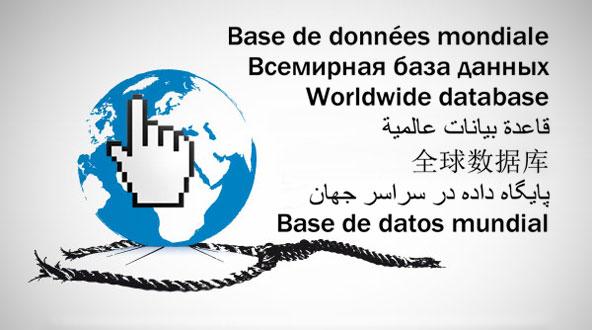
Article(s)
Up-to-date country-by-country death penalty information
By World Coalition Against the Death Penalty, on 18 April 2013
The World Coalition is improving access to legal and statistical information on countries that retain the death penalty.
2013

Member(s)
Belarusian Helsinki Committee
on 30 April 2020
Founded in 1995, the National Human Rights Public Association “Belarusian Helsinki Committee” is one of the oldest human rights defenders organizations in Belarus. The list of its founders includes the nation’s most prominent leaders such as Vasil’ Bykau, Sviatlana Alexievich (Nobel prize in literature 2015). BHC sees as its main objective creating of civic context, […]
2020
Belarus
Document(s)
The Arts and Human Rights: Introducing the “Sweet Destiny” Album and Film
on 25 August 2021
2021
Multimedia content
Iran (Islamic Republic of)
More details See the document
Iran Human Rights (IHR); August 25, 2021: Pioneering Iranian alternative rock band, Kiosk have released a new musical film and album titled “Sweet Destiny.” Based on a historic 1853 photograph of a public execution by cannon fire in Iran, it is the first professional Farsi language album or film of its kind to be dedicated to the subject of the death penalty.
The story is narrated by the photographer who has been summoned to photograph the scene of the execution as proof and questions the defendant’s crime. Divided into 14 acts, the imagined story of the execution is layered with cultural and political metaphors and references. Kiosk’s rich and poignant songs create context, take the viewers through the history of Iran since 1853 and highlight the critical issues around the death penalty and human rights breaches in Iran. Using historical photographs, paintings and animation, Sweet Destiny is visually mesmerising and thought provoking with sprinkles of satire that masterfully cross cultural boundaries. The film is subtitled in English.
- Document type Multimedia content
- Countries list Iran (Islamic Republic of)
Document(s)
Reducing Facial Stereotype Bias in Consequential Social Judgments: Intervention Success With White Male Faces
By Youngki Hong, Kao-Wei Chua, & Jonathan B. Freeman, Columbia University, on 25 January 2024
2024
Article
United States
More details See the document
Published on December 18, 2023.
Initial impressions of others based on facial appearances are often inaccurate yet can lead to dire outcomes. Across four studies, adult participants underwent a counterstereotype training to reduce their reliance on facial appearance in consequential social judgments of White male faces. In Studies 1 and 2, trustworthiness and sentencing judgments among control participants predicted whether real-world inmates were sentenced to death versus life in prison, but these relationships were diminished among trained participants. In Study 3, a sequential priming paradigm demonstrated that the training was able to abolish the relationship between even automatically and implicitly perceived trustworthiness and the inmates’ life-or-death sentences. Study 4 extended these results to realistic decision-making, showing that training reduced the impact of facial trustworthiness on sentencing decisions even in the presence of decision-relevant information. Overall, our findings suggest that a counterstereotype intervention can mitigate the potentially harmful effects of relying on facial appearance in consequential social judgments.
- Document type Article
- Countries list United States

Member(s)
Observatoire Marocain des Prisons
on 30 April 2020
L’Observatoire marocain des prisons (OMP) is an independent non-governmental organisation created by human rights activists to protect and promote the rights of prisoners. It monitors prison conditions in Morocco, provides legal assistance to prisoners and runs a research, information and advocacy centre for more humane prisons. The OMP considers that the dignity and physical and […]
2020
Morocco
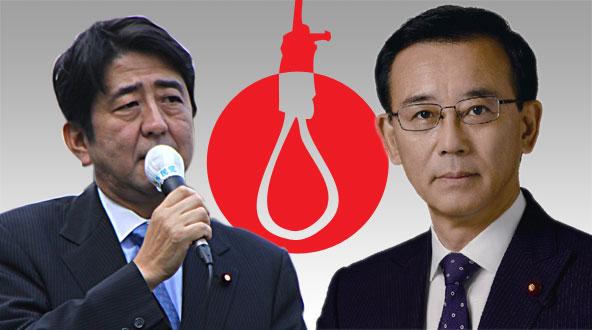
Article(s)
Latest Japan execution violates UN guidelines
on 16 September 2013
World Coalition member organisation Center for Prisoners’ Rights condemns the execution of an elderly prisoner in Tokyo on 12 September.
2013
Japan
Document(s)
Report to the Committee on Defender Services Judicial Conference of the United States – Update on the Cost and Quality of Defense Representation in Federal Death Penalty Cases
By Lisa Greenman / Jon B. Gould / Office of Defender Services of the Administrative Office of the U.S. Courts, on 8 September 2020
2020
NGO report
United States
More details See the document
Part I of this report offers an introduction and overview of the research. Part II examines the way prosecution policies and practices have developed from 1989, the beginning of the modern federal death penalty era, through the end of 2009. Parts III, IV, and V of this report discuss the costs associated with defending a federal capital case. Section VI describes qualitative data obtained through interviews of federal judges who had presided over a federal death penalty case and experienced federal capital defense counsel on topics such as the quality of defense representation, case budgeting and case management practices, the role of experts, and the death penalty authorization process. Finally, in Sections VII and VIII, the Recommendations of the 1998 Spencer Report are reaffirmed, and the Commentary associated with those recommendations is updated to reflect the past 12 years of experience with federal capital litigation.
- Document type NGO report
- Countries list United States
- Themes list Financial cost,

Member(s)
KontraS (Commission for the Disapeared and Victims of Violence)
on 30 April 2020
KontraS (Commission for the Disappeared and Victims of Violence) in Indonesia is a human rights NGO that deals with human rights issues in Indonesia, particularly civil and political rights. Abolition of the death penalty is one of its advocacy objectives. KontraS is a member of regional and national networks: Anti Death Penalty Asian Network (ADPAN) […]
2020
Indonesia
Document(s)
In Defense of the Right to Life: International Law and Death Penalty in the Philippines
By Commission on Human Rights of the Philippines , on 1 January 2017
2017
Academic report
More details See the document
This study is a joint collaboration between international law expert Dr Christopher Ward SC, Senior Counsel of the New South Wales Bar and Adjunct Professor of the Australian National University, and the Commission on Human Rights of the Philippines.
- Document type Academic report
- Themes list International law, Death Penalty, Country/Regional profiles,
Article(s)
Hands Off Cain holds moratorium conference in Gabon
on 11 December 2007
The Italian-based abolitionist group organised the event in Libreville on December 10, Human Rights Day 2007, with the government of Gabon and financial backing from the Dutch government.
2007
Burundi
Democratic Republic of the Congo
Gabon
Gabon
Mali
Moratorium
Document(s)
Poster World Day 2005
By World Coalition against the death penalty , on 10 October 2005
2005
Campaigning
Trend Towards Abolition
frMore details Download [ pdf - 46 Ko ]
To date, 12 African countries have abolished the death penalty for all crimes;
20 retain the death penalty but are no longer carrying out executions; and 21 retain and use
the death penalty. The World Coalition against the death penalty has decided to devote the
World Day 2005 to a campaign to encourage all African countries to abolish capital
punishment permanently.
- Document type Campaigning
- Themes list Trend Towards Abolition
- Available languages Affiche journée mondiale 2005
Document(s)
New Research Finds That Historical News Coverage Reduced Executed Black Men to “Faceless, Interchangeable Public Safety Hazards” While Executed White Men Were Portrayed As “Tragic Heroes”
By The Death Penalty Information Center (DPIC), on 24 January 2024
2024
Article
Public Opinion
United States
More details See the document
Published on December 12, 2023.
In a recently published academic article, Emory University History Professor Daniel LaChance writes about an important and underrecognized distinction in the way newspaper editors and journalists covered the executions of Black and white men in the late 19th and early 20th centuries. Professor LaChance argues that the portrayals of the defendants made legal executions “a high-status punishment that respected the whiteness of those who suffered it.” While the length and detail of articles about the executions of Black men shrank dramatically over time, he notes that journalists consistently highlighted the humanity of white men who were executed, making it “easier for those who wanted to project a modern image of the South to distance capital punishment from lynching, a form of violence that was becoming a source of embarrassment for respectable white Southerners.”
- Document type Article
- Countries list United States
- Themes list Public Opinion
Document(s)
India and the Death Penalty Using the Media: How an Event Can Influence the Establishment of the Death Penalty
By Ensemble contre la peine de mort (ECPM), on 1 January 2017
2017
NGO report
More details See the document
- Document type NGO report
- Themes list Public debate, Member organizations, Death Penalty,
Article(s)
“Young people over 13 will understand”
on 28 February 2010
Wen-Yu Weng (19), a student and debating coach from Thailand who attended the World Congress workshop on educational strategies, thinks young teenagers are mature enough to understand the death penalty debate – just like she did.
2010
Thailand
Document(s)
The Death Penalty in the OSCE Area: Background Paper 2022
By Organization for Security and Co-operation in Europe, on 7 October 2022
2022
Regional body report
More details See the document
This paper updates The Death Penalty in the OSCE Area: Background Paper 2021. It is intended to provide a concise update to highlight changes in the status of the death penalty in OSCE participating States since the previous publication and to promote constructive discussion of the issue. It covers the period from 1 April 2021 to 31 March 2022.
- Document type Regional body report
Document(s)
A/HRC/42/28 – Capital punishment and the implementation of the safeguards guaranteeing protection of the rights of those facing the death penalty
By Human Rights Council, on 8 September 2020
2020
United Nations report
rufrzh-hantarMore details See the document
The present report is submitted pursuant to resolution 36/17,of the Human Rights Council. The report examines the consequences arising at various stages of the imposition and application of the death penalty on the enjoyment of the human rights of persons facing the death penalty and other affected persons. It pays specific attention to the impact of the resumption of the use of the death penalty on human rights
- Document type United Nations report
- Themes list International law, Death Penalty,
- Available languages A/HRC/42/28 - Смертная казнь и осуществление мер, гарантирующих защиту прав лиц, приговоренных к смертной казниA/HRC/42/28 - Peine capitale et application des garanties pour la protection des droits des personnes passibles de la peine de mortA/HRC/42/28 - 死刑和保护死刑犯权利的保障措施的执行情况عقوبة الإعوداموتنفيو الضومات الويتكفو حمايوةحقووقالو ي يواجهوونعقوبة الإعدام - A/HRC/42/28
Document(s)
STRENGTHENING THE DEFENCE IN DEATH PENALTY CASES IN THE PEOPLE´S REPUBLIC OF CHINA: Empirical Research into the Role of Defence Councils in Criminal Cases Eligible for the Death Penalty
By Hans Jörg Albrecht / Max Planck Institute for Foreign and International Criminal Law, on 1 January 2006
2006
Article
China
More details See the document
This project examines the role of defence councils in Chinese criminal proceedings that can end up with the imposition of the death penalty. It aims to review the problems defence lawyers face in such proceedings, the defence strategies they apply and to examine whether the assignment of a defence lawyer makes a difference in the outcome of a criminal trial. Moreover, the project explores what can and should be done to empower defence councils to effectively represent suspects and accused in death penalty eligible cases.The objective of the study is to shed light on the problems experienced by criminal defence councils when defending capital crime cases and to generate information on how death penalty cases are processed through the Chinese system of justice as well as the determinants of the outcomes death penalty eligible criminal cases.
- Document type Article
- Countries list China
- Themes list Legal Representation,
Article(s)
Pardons and commutations in Nigeria
on 29 August 2009
Shortly after Kenya commuted thousands of death sentences, the Nigerian state of Lagos took similar steps and moved closer to abolition.
2009
Clemency
Nigeria
Nigeria
Document(s)
Incestuous Rape and the Death Penalty in the Philippines: Psychological and Legal Implications
By Seema Kandelia / Philippine Law Journal, on 1 January 2006
2006
Article
Philippines
More details See the document
The majority of those on death row in the Philippines have been convicted of rape crimes, including rape of a minor, rape of a family member and other aggravated forms of rape. Looking at incestuous rape in particular, this paper will examine some of the psychological and legal difficulties of imposing the death penalty for such a crime. It will focus on the effects the administration of the death penalty has on the victim and the victim’s family, as well as looking at some of the legal, evidential and procedural problems that arise in this jurisdiction’s imposition of the death penalty for rape.Despite the continued existence of the death penalty for incestuous rape, the number of reported cases has not diminished. Recognising this, local women’s groups in the Philippines have called for the root causes of incest and other forms of violence against women to be addressed rather than imposing the death penalty for rape. This response will also be considered within the broader context of Filipino gender relations.
- Document type Article
- Countries list Philippines
- Themes list Networks,
Document(s)
Capital punishment and implementation of the safeguards guaranteeing protection of the rights of those facing the death penalty : report of the Secretary-General
By United Nations, on 1 January 2001
2001
United Nations report
arruesesenarrufrfrzh-hantzh-hantMore details See the document
The report shows an encouraging trend towards abolition and restriction of the use of capital punishment in most countries. It also shows that much remains to be done in the implementation of the safeguards guaranteeing protection of the rights of persons facing the death penalty in those countries that retain it.
- Document type United Nations report
- Themes list Trend Towards Abolition,
- Available languages عقوبة الإعدام وتنفيذ الضمانات التي تكفل حماية حقوق الذين يواجهون عقوبة الإعدام : م ذكّرة من الأمين العامСмертная казнь и применение мер, гарантирующих защиту прав тех, кому грозит смертная казнь : Доклад Генерального секретаряLa pena capital y la aplicación de las salvaguardias para garantizar la protección de los derechos de los condenados a la pena de muerte : Informe del Secretario GeneralLa pena capital y la aplicación de las salvaguardias para garantizar la protección de los derechos de los condenados a la pena de muerte : Informe del Secretario GeneralCapital punishment and implementation of the safeguards guaranteeing protection of the rights of those facing the death penalty: Report of the Secretary-Generalعقوبة الإعدام وتنفيذ الضمانات التي تكفل حقوق ال ذين يواجهون عقوبة الإعدام :تقرير الأمين العامСмертная казнь и осуществление мер, гарантирующих защиту прав тех, кто приговорен к смертной казни: Доклад Генерального секретаряPeine capitale et application des garanties pour la protection des droits des personnes passibles de la peine de mort: Rapport du Secrétaire généralPeine capitale et application des garanties pour la protection des droits des personnes passibles de la peine de mort: Rapport du Secrétaire général死刑和保护死刑犯权利的保障措施的执行情况: 秘书长的报告死刑和保护死刑犯权利的保障措施的执行情况: 秘书长的报告
Document(s)
What Strategies Towards the Abolition of the Death Penalty in West Africa? : Report of the Symposium in Dakar
By FIACAT, on 1 January 2012
2012
NGO report
More details See the document
The regional seminar on the abolition of the death penalty in West Africa took place inDakar (Senegal) from 12-14 November 2012. This workshop brought together nineteenACAT members affiliated to FIACAT. It was therefore possible for each of the nine West Afri-can ACATs1to be represented by two participants (with the exception of Senegal, whichwas represented by three members).Participants at the workshop attended lectures and had the opportunity to developnational action plans for achieving abolition in their countries. According to feedbackreceived at the end of the seminar, attendees found the practical nature of the lectures,and the opportunity to network with other ACATs and learn from the experiences of otherparticipants, particularly beneficial.This document is a collection of all of the lectures from the Dakar seminar, as well asinternational and African texts relating to the death penalty. It is intended as a practicaltool to assist us as we progress towards abolition in Sub-Saharan Africa.
- Document type NGO report
- Themes list Trend Towards Abolition, Member organizations, Country/Regional profiles,
Document(s)
International Perspectives on the Death Penalty: A Costly Isolation for the U.S.
By Death Penalty Information Center / Richard C. Dieter, on 1 January 1999
1999
NGO report
More details See the document
This report examines the sequence of recent events that has increasingly placed the death penalty in the international spotlight. Some of these events are direct challenges to the practice of capital punishment in the U.S. Others are changes in the balance of death penalty practices and attitudes around the world. The report looks at the ways in which the international community has sought to limit the application of the death penalty, and the U.S.’s response to these initiatives. It also explores the world-wide trend towards complete abolition of the death penalty and the U.S. reaction. Although much of the official U.S. response to international criticism has been denial, the report looks at some local and unofficial actions, which indicate a different direction. Finally, the report notes the present and potential costs the U.S. is facing for adhering to the death penalty.
- Document type NGO report
- Themes list Networks,
Member(s)
Bayt Al Hikma
on 30 April 2020
Bayt Al Hikma is a non-governmental organization founded in 2007 whose main objective is to promote the values of human rights and individual freedoms. Our activities revolve around two themes 1. Values and individual freedoms 2. The promotion and protection of children. Our action plan is as follows: • Annual Report: Prepare an annual report […]
2020
Morocco
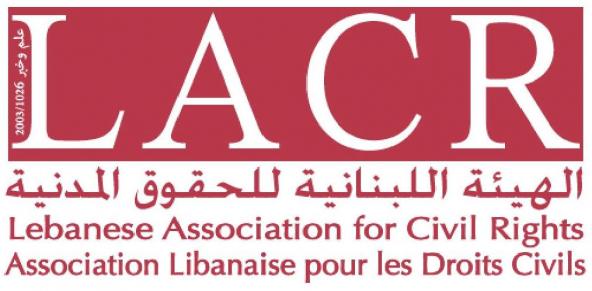
Member(s)
Lebanese Association for Civil Rights (LACR)
on 30 April 2020
The Lebanese Association for Civil Rights – LACR was founded in 2003 as a continuation of an action experienced since 1983 by two pioneers of the culture of non-violence in Lebanon and the Arab world: Walid Slaybi and Ogarit Younan. They are both writers, researchers, sociologists, pioneers of active training in Lebanon and grassroots activists. […]
Lebanon
Document(s)
Living with a Death Sentence in Kenya: Prisoners’ Experiences of Crime, Punishment and Death Row
By Carolyn Hoyle and Lucrezia Rizzelli, on 24 January 2023
2023
Book
Kenya
More details See the document
The Death Penalty Project’s latest report provides a comprehensive analysis of the lives of prisoners on death row in Kenya. It focuses on prisoners’ socio-economic backgrounds and profiles, their pathways to, and motivation for, offending, as well as their experiences of the criminal justice process and of imprisonment. It complements our previous research, a two-part study of attitudes towards the death penalty in Kenya, The Death Penalty in Kenya: A Punishment that has Died Out in Practice.
While 120 countries around the world have now abolished the death penalty, including 25 in Africa, Kenya is one of 22 African nations that continues to retain the death penalty in law, albeit it has not carried out any executions for more than three decades. As such, Kenya is classified as ‘abolitionist de facto’, the United Nations term for a country that has not carried out an execution for at least 10 years. Yet, while state-sanctioned executions no longer occur, hundreds of people are currently living under sentence of death and others are convicted and sentenced to death each year. As long as the death penalty is retained in law, there remains a risk that executions might resume if there is political change. Moreover, the plight and turmoil of those languishing on death row – consistently the poorest and most vulnerable – cannot be ignored. They are disproportionately sentenced to death and suffer the harshest punishments and treatment.
- Document type Book
- Countries list Kenya
Page(s)
Life of the Network
on 22 June 2020
Abolitionists around the world are mobilizing to end the death penalty. World Day, World Congress, important events for the life of the World Coalition such as the steering committees, but also meetings, events and actions carried out by our members around the world: do not miss any event related to the fight against the death […]
2020
Document(s)
Shadow Report on the Death Penalty in the United States of America for the CERD
By The Advocates for Human Rights / Puerto Rican Coalition against the Death Penalty / Greater Caribbean For Life, on 1 January 2014
2014
NGO report
More details See the document
This report for consideration during the85th Session of the United Nations Committee on the Elimination of Racial Discrimination addresses five main issues with regard to the United States’ use of the death penalty and how the death penalty disproportionately affects minorities in the United States.
- Document type NGO report
- Themes list Discrimination,
Document(s)
Death Penalty: Sociological Survey of Public Opinion on the Abolition of the Death Penalty in the Republic of Tajikistan
By Penal Reform International, on 1 January 2013
2013
NGO report
More details See the document
The present study of public opinion on the death penalty in Tajikistan was conductedbetween June and August 2013. The main purpose of the study was to obtain reliableinformation about public opinion on the deathpenalty in Tajikistan, its awareness ofthe changes that have occurred in this areaand to see any changes in attitude since2010.
- Document type NGO report
- Themes list Public opinion,
Document(s)
The Mandatory Death Penalty in the Commonwealth Caribbean and the Inter-American Human Rights System: An Evolution in the Development and Implementation of International Human Rights Protections
By Brian D. Tittemore / William and Mary Bill of Rights 13 (2), 445, on 1 January 2004
2004
Article
More details See the document
Among the most significant and compelling aspects of the litigation surrounding the issue of the mandatory death penalty in the Caribbean region has been the interplay between the procedures and jurisprudence of the inter-American human rights system and those of relevant domestic courts. In particular, the supervisory bodies of the inter-American system have relied upon the decisions of appellate courts in certain states employing the death penalty, and have concluded that the practice of mandatory sentencing for the death penalty contravened applicable international human rights norms. Subsequently, appellate courts in the Caribbean region explicitly relied upon the jurisprudence of the Inter-American Commission on Human Rights and the Inter-American Court of Human Rights in interpreting and applying rights that are protected under national constitutions. Moreover, the Judicial Committee of the Privy Council found that the protection of due process of law under national constitutions extend to the procedures before the inter-American human rights system,’ with the consequence that states were barred from executing capital defendants while their pending cases were before the Inter-American Commission on Human Rights and, where available, the Inter-American Court of Human Rights.
- Document type Article
- Themes list Mandatory Death Penalty,

Article(s)
Watch Belarus Free Theatre Live Stream!
By World Coalition Against the Death Penalty, on 6 November 2015
Sunday 8 November: live stream starts at 19:00 London time. Belarus Free Theatre serve up food, music, dance and Shakespeare as they share true stories from inmates, executioners, human rights lawyers and families of the executed.
2015
Belarus
Belarus
Document(s)
Philippines: March 2018 National Survey on Public Perceptions on the Death Penalty
By Social Weather Stations (SWS), on 1 January 2018
2018
NGO report
More details See the document
This is the main finding of the March 2018 National Survey on Public Perception on the Death Penalty, conducted by Social Weather Stations (SWS) for the Commission on Human Rights of the Philippines (CHRP). This is the first survey in the Philippines to explore thought processes and disentangle layers of perceptions about the death penalty. It did face-to-face interviews of 2,000 respondents aged 15 and above nationwide during the period March 22 to 27, 2018.
- Document type NGO report
- Themes list Public opinion, Death Penalty, Country/Regional profiles,
Article(s)
DVD carries the voice of abolitionists in Asian languages
on 4 August 2008
A DVD released by ADPAN features a campaigning video made from interviews with international anti-death penalty activists in 13 Asian languages.
2008
China
India
Indonesia
Japan
Lao People's Democratic Republic
Mongolia
Pakistan
Philippines
Republic of Korea
Thailand
Viet Nam

Member(s)
International Federation for Human Rights (FIDH)
on 30 April 2020
The International Federation for Human Rights (FIDH)’s mandate is to act effectively to ensure all the rights laid down in the Universal Declaration of Human Rights are respected. These include civil and political rights, as well as economic, social and cultural ones. The FIDH is a federation of 141 leagues in 100 countries. It coordinates […]
2020
France
Document(s)
The question of the death penalty: Report of the Secretary-General
By United Nations, on 1 January 2006
2006
International law - United Nations
arrufrzh-hantesMore details See the document
The present report contains information covering developments during 2006. The report indicates that the trend towards abolition of the death penalty continues. This is illustrated, inter alia, by the increase in the number of countries that have abolished the death penalty and by the increase in ratifications of international instruments that provide for the abolition of this form of punishment.
- Document type International law - United Nations
- Themes list Trend Towards Abolition,
- Available languages دام عقوبة مسألة: العام الأمينВопрос о смертной казни: Доклад Генерального секретаряQuestion de la peine de mort : Rapport du Secrétaire général死刑问题: 秘书长的报告La cuestión de la pena capital: Informe del Secretario General
Document(s)
The Kentucky Death Penalty Assessment Report: Evaluating fairness and accuracy in state death panlty systems. An Analysis of Kentucky’s Death Penalty Laws, Procedures, and Practices
By American Bar Association, on 1 January 2011
2011
NGO report
More details See the document
This report examines how state death penalty systems are functioning in design and practice and are intended to serve as the bases from which states can launch comprehensive self-examinations, impose reforms, or in some cases, impose moratoria.
- Document type NGO report
Document(s)
Iran/death penalty: A state terror policy – Special edition for the 4th World Congress against the death penalty
By Bijan Baharan / International Federation for Human Rights (FIDH), on 8 September 2020
2020
NGO report
Iran (Islamic Republic of)
faMore details See the document
This report covers the various aspects of the topic including: domestic laws, international legal framework, execution of juvenile offenders, religious and ethnic minorities, and methods of execution. According to the report, there are over 20 main categories of offences, some of them with several sub-categories, in the IRI, which are punishable by the death penalty. The majority of those “offences” are certainly not among “the most serious crimes.” Some others should not be considered as “offences” at all. In conclusion, FIDH issued a wide set of recommendations to the IRI and the international community. Among others, it recommended the adoption of an immediate moratorium on executions in light of the serious shortcomings of the guarantees of due process and fair trial.
- Document type NGO report
- Countries list Iran (Islamic Republic of)
- Themes list Minorities, Country/Regional profiles,
- Available languages ایران: مجازات اعدام سیاست دولتی ایجاد وحشت ـ ویژه نامه برای کنگره ی جهانی ضد مجازات اعدام
Document(s)
United Nations General Assembly – Resolutions of the 77th Session
By United Nations, on 15 December 2022
2022
United Nations report
aresfrruzh-hantMore details See the document
This report provided by the United Nations General Assembly presents the resolutions of the 77th session. It includes reports on the moratorium on the use of the death penalty (A/77/463/Add.2 DR XII) which was adopted on the 15th of December 2022 with a vote (125-37-22) (A/77/PV.54) under item 68(b). Guided by the purposes and principles contained in the Charter of the United Nations, it reaffirms the Universal Declaration of Human Rights, the International Covenant on Civil and Political Rights and the Convention on the Rights of the Child and recalls the Second Optional Protocol to the International Covenant on Civil and Political Rights, aiming at the abolition of the death penalty.
- Document type United Nations report
- Available languages الجمعية العامة للأمم المتحدة - قرارات الدورة السابعة والسبعينAsamblea General de las Naciones Unidas - Resoluciones del 77º Período de SesionesAssemblée Générale des Nations Unies - Résolutions de la 77e SessionГенеральная Ассамблея ООН - Резолюции 77-й сессии联合国大会 - 第77届会议的决议

Member(s)
The Human Rights Centre “Viasna”
on 30 April 2020
The Human Rights Centre “Viasna” is a non-governmental human rights organization active since 1996. It is a nation-wide NGO with a central office in Minsk and a dozen local offices across the country. Viasna has about 200 members. In 2003, the Supreme Court groundlessly cancelled the registration of Viasna for its participation in the observation […]
2020
Belarus

Article(s)
Take Action for World Day 2022!
By World coalition against the death penalty, on 9 September 2022
Take action now! The 20th World Day Against the Death Penalty is an excellent opportunity to publicly oppose the use of this inhumane punishment and to support those who are fighting for its abolition all over the world. > Spread the word on Facebook, Twitter and Instagram: #nodeathpenalty > Find out more about the World […]
2022
Cruel, Inhuman and Degrading Treatment and Punishment

Article(s)
Take Action for World Day 2021!
By World Coalition Against the Death Penalty, on 10 September 2021
Take action now! The 19th World Day Against the Death Penalty is an excellent opportunity to publicly oppose the use of this inhumane punishment and to support those who are fighting for its abolition all over the world.
2021
Drug Offenses
Fair Trial
Women
Document(s)
TRANSPARENCY AND THE IMPOSITION OF THE DEATH PENALTY, Report of the Special Rapporteur, Philip Alston
By United Nations / Philip Alston, on 1 January 2006
2006
International law - United Nations
arrufrzh-hantesMore details See the document
The present report of the Special Rapporteur on extrajudicial, summary or arbitrary executions analyses a critical area of non-compliance with legal safeguards designed to protect the right to life. It builds upon the proposition that “[c]ountries that have maintained the death penalty are not prohibited by international law from making that choice, but they have a clear obligation to disclose the details of their application of the penalty” (E/CN.4/2005/7, para. 59). The report analyses the legal basis of that transparency obligation and examines case studies that illustrate the major problems that exist in this area.
- Document type International law - United Nations
- Themes list Trend Towards Abolition,
- Available languages الإعدام عقوبة وفرض الش, ألستون∗ فيليب السيد الخاص، المقررТРАНСПАРЕНТНОСТЬ И ВЫНЕСЕНИЕ СМЕРТНОГО ПРИГОВОРА, Доклад Специального докладчика Филипа АлстонаTRANSPARENCE ET IMPOSITION DE LA PEINE DE MORT, Rapport du Rapporteur spécial, M. Philip Alston死刑的公开和执行问题, 特别报告员菲利普·奥尔斯顿的报告LA TRANSPARENCIA Y LA IMPOSICIÓN DE LA PENA DE MUERTE, Informe del Relator Especial, Philip Alston
Document(s)
2012 Report – Moratorium on the use of the death penalty
By United Nations, on 3 August 2012
2012
United Nations report
Moratorium
aresfrruzh-hantMore details See the document
The present report is submitted to the General Assembly pursuant to its resolution 65/206. It discusses the trend towards abolition of the death penalty and the establishment of a moratorium on execution. The report also reflects on the application of international standards relating to the protection of the rights of those facing the death penalty. It further discusses the importance of making available relevant information with regard to the use of the death penalty, which can contribute to transparent national debates and international and regional initiatives for the promotion of the universal abolition of the death penalty.
- Document type United Nations report
- Themes list Moratorium
- Available languages تقرير 2012 - وقف العمل بعقوبة الإعدامInforme 2012 - Moratoria del uso de la pena de muerteRapport 2012 - Moratoire sur l’application de la peine de mortДоклад 2012 - Мораторий на применение смертной казни2012报告 - 暂停使用死刑
Document(s)
2018 Report – Moratorium on the use of the death penalty
By United Nations, on 14 October 2020
2020
United Nations report
aresfrruzh-hantMore details See the document
- Document type United Nations report
- Available languages تقرير 2018- وقف العمل بعقوبة الإعدامInforme 2018 - Moratoria del uso de la pena de muerteRapport 2018 - Moratoire sur l'application de la peine de mortДоклад 2018 - Мораторий на применение смертной казни2018报告 - 暂停使用死刑联合国

